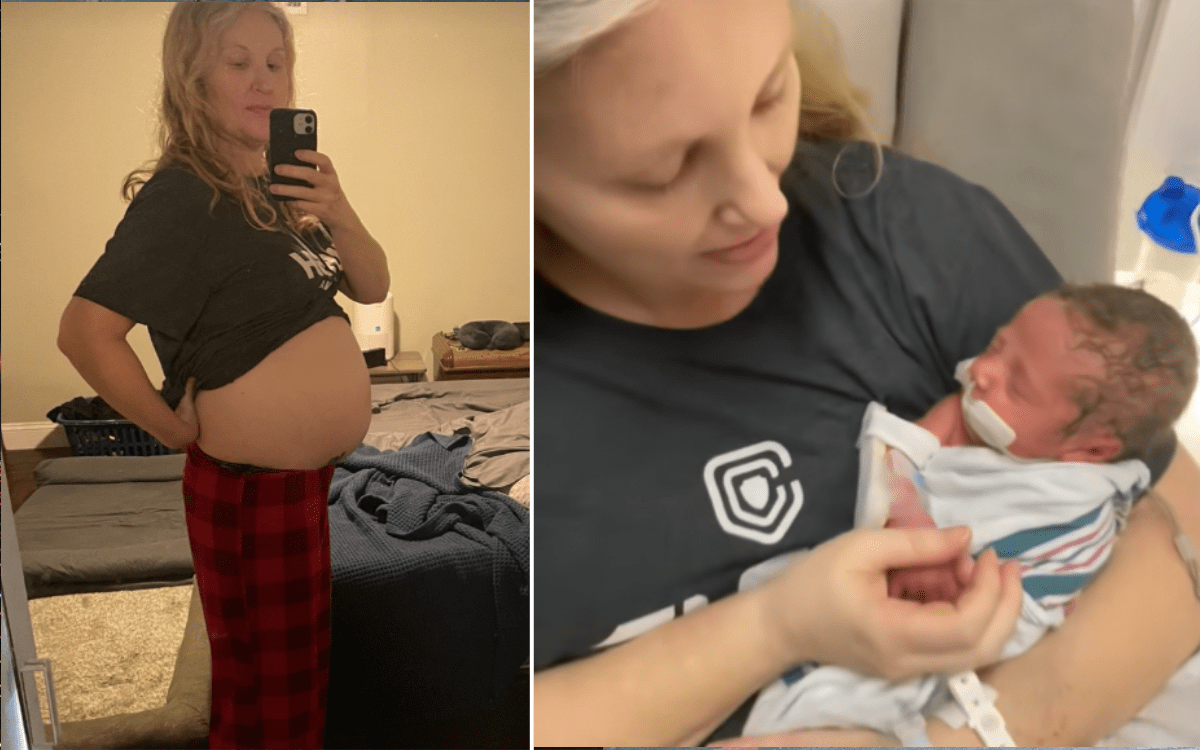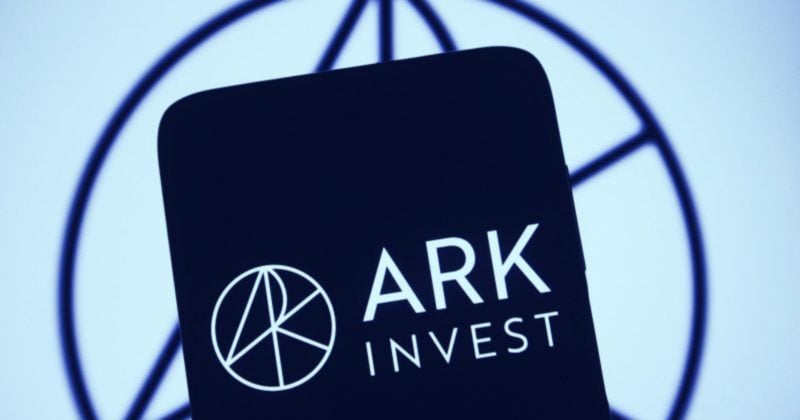A woman was busy adjusting to becoming a mom for the second time when a shock diagnosis changed everything. Staci Marklin, from Tennessee, was 44 when her son was born. It was a big adjustment. Marklin and her husband already had a daughter who was 18 at the time. Having almost jumped all of the major hurdles of parenthood up until that point, the arrival of their son had them essentially starting over again and having to get reacquainted with the challenges and pitfalls of caring for an infant.
However, Marklin would soon discover she was facing an even bigger challenge. In March of this year, she was diagnosed with early-onset Alzheimer’s disease.
“I had been having some memory issues for about two years but assumed it was perimenopause,” Marklin told Newsweek. “Then about a year ago, I started switching words. For instance, ‘move the curtain’ instead of ‘move the carpet.’”
Marklin was a nurse and had lots of experience working with Alzheimer’s and dementia patients, so she knew she needed to get checked. Within six months, she received the diagnosis that would change her family’s life forever.
“My toddler was two at the time,” she said. “As a mother, I was terrified I wouldn’t be able to be there for him as he grew up. My husband and I cried and began to grieve the life we had planned and prepared to start the life where we fight this awful disease.”
Despite the shock, Marklin, who was 46 when she was diagnosed, was determined to take on whatever challenges lay ahead and make the most of the life she still had.
“Right now my biggest symptoms are short-term memory loss, fatigue, and word-finding difficulty,” she said. “This can be switching words or having something on the ‘tip of the tongue’ where I’m always stuck trying to remember the right word.”
Marklin also struggles with a “very short term” memory, which presents challenges when it comes to caring for her son.
“I will change my son’s pull-up then immediately forget I have done it,” she said. “As you can imagine, potty training is not going well.”
Fatigue also means that she usually naps whenever her toddler does and tries to plug the gaps throughout the rest of her day with caffeine.
Most heartbreaking of all, Marklin’s condition means she doesn’t trust herself to solo parent anymore.
“As a mom of a toddler with Alzheimer’s, routine is a must for both of us,” she said. “I really don’t like to be alone with him anymore. Although I’m very early on and technically could be alone with him, I’m on the new IV treatment, the anti-amyloid therapy, which can cause some pretty severe side effects so I feel it’s safe for all involved if someone is always with me.”
On top of learning to live with her condition, Marklin has also had to contend with the complex feelings that her diagnosis left her with.
“I felt so alone and I was embarrassed to tell people,” she said. “Nobody really believed me because of the stigma associated with this disease. Many people see this as a disease of the older population and that people with this disease are incapable and can’t do anything for themselves.”
Neither is true, of course. It is estimated that around 6.5 million people in the U.S. are living with Alzheimer’s—and while the early-onset form is relatively rare, it still accounts for approximately 5 percent of these cases.
Marklin wasn’t alone, but she only truly began to realize that when she started her TikTok @tryingnottoforget to document her journey and experiences.
“I started my TikTok with the hopes of finding others like me and forming a community of support,” she said. “I now want to continue that and also show people that Alzheimer’s can look different and help remove the stigma through honesty and education.”
The channel has made a huge impact. One recent video earned over 200,000 views and counting. In the clip, Marklin responded to a user who asked: “How do you feel safe alone with the baby with this?”
The video saw Marklin speak openly about feeling “terrified” at the idea, which she described as her “worst fear.”
“I don’t feel safe,” she said. “I don’t know when I could get distracted or confused.”
Marklin’s husband is a merchant marine, meaning he is often away with work. Thankfully, Marklin is supported by her mother and mother-in-law during these periods.
“I am still very capable but also very cautious with my child. I believe my history as a nurse helps me notice my symptoms earlier and act reasonably,” she said. “I have seen so many refuse to accept their limitations.”
Marklin is currently receiving Leqembi, a medication for treating early-onset Alzheimer’s. The hope is that this treatment will ensure she enjoys many more years with her family.
In the meantime, she will continue to post updates regularly on TikTok.
“I want to spread awareness that new diagnostic testing available for Alzheimer’s can help diagnose the disease earlier, leading to earlier treatment, and hopefully better outcomes,” she concluded.
https://www.newsweek.com/gave-birth-son-2-years-later-came-alzheimers-diagnosis-early-onse-10951437



